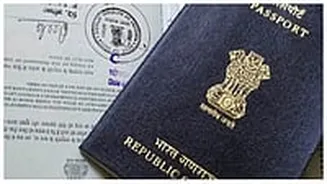How to raise funds for Study Abroad? The average costs for Studying Abroad is around Rs 20 to 60 lakh per year, which varies as per your country, tuition
fees, living expenses, program duration, other factors. For studying in USA, the students need to pay Rs 60 to 80 lakh per year, UK- Rs 30 to 40 lakh per year, Canada- Rs 20 to 25 lakh per year, Australia- Rs 20 to 30 lakh per year, as per reports.
According to the latest data from the Ministry of External Affairs (MEA), over 1.8 million students are currently studying abroad in 2025, a whopping increase of 1.3 million students two years ago.
But lots of students could not cherish their study abroad dreams due to financial issues. Here are the ways students can follow to fund their overseas education programme-
Scholarships/ Grants/ Bursaries
There are various scholarships programme run by central government, renowned institutes that provides full, partial fee waiver for students studying abroad.
The scholarships provided by Indian government are- National Overseas Scholarship (NOS), Fulbright-Nehru Fellowships, Fulbright-Kalam Climate Fellowship, Raman-Charpak Fellowship, DST-INSPIRE Overseas Scholarship, Dr. Ambedkar Scheme of Interest Subsidy, JN Tata Endowment.
National Overseas Scholarship- The Scheduled Caste students are eligible to pursue Master's and PhD degrees abroad under this scholarship.
Fulbright-Nehru Fellowship- The fellowship is being provided to researchers working in USA varsities.
Fulbright-Kalam Climate Fellowship- The fellowship is being provided for Indo-French collaborative research.
DST-INSPIRE Overseas Scholarship- The scholarship is being provided for doctoral and postdoctoral research in STEM fields.
JN Tata Endowment- It offers loan scholarships for students pursuing higher education abroad.
Apart from the central government provided scholarships/ fellowships, there are country-specific scholarships, scholarships/ fellowships provided by private institutes.
Education Loans
The students can apply for education loans provided by bank. The outstanding education loan portfolio touched 1.31 lakh crore last year in November, as per RBI data. The education loans have lower interest rates in comparison to personal loans.
How to obtain education loan
A good credit score increases your chances of obtaining education loans. A high credit score indicates responsible credit behavior, a clean repayment track record and a lower risk of default for the lender which typically increases your chances for getting approved for credit card or a loan. A good credit score can also make your education loan repayment cheaper. If you have a high credit score, lenders will provide you with a comparatively lower rate of interest for availing credit on an education loan.
A credit score of 750 or above is generally considered as a good credit score for availing credit by all four credit bureaus in India — CIBIL, Experian , CRIF High Mark and Equifax.
Personal loan
Students who are facing difficulties in getting education loan, can opt for personal loan. The benefit of having a personal loan is it can be used for any purpose without restrictions. The students can use for their travel, VISA, accomodations, other necessary purposes. While education loan can be used only for the purpose of paying course fees, other programme related costs.
The personal loan like education loan also required a good credit score to avail. Try to maintain your CIBIL score above 70 to get a hefty loan amount that will solve purpose.
Part-Time Jobs
The students can explore part-time jobs in the country they wish to pursue UG/ PG courses. Part-time job options include content writing, library assistant, administrative assistant, hospitality, retail, sales sector, others.
Crowdfunding
The students can raise funds through crowdfunding campaign. They can raise the fund of their study through crowdfunding platform, social media campaign.















